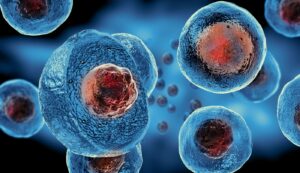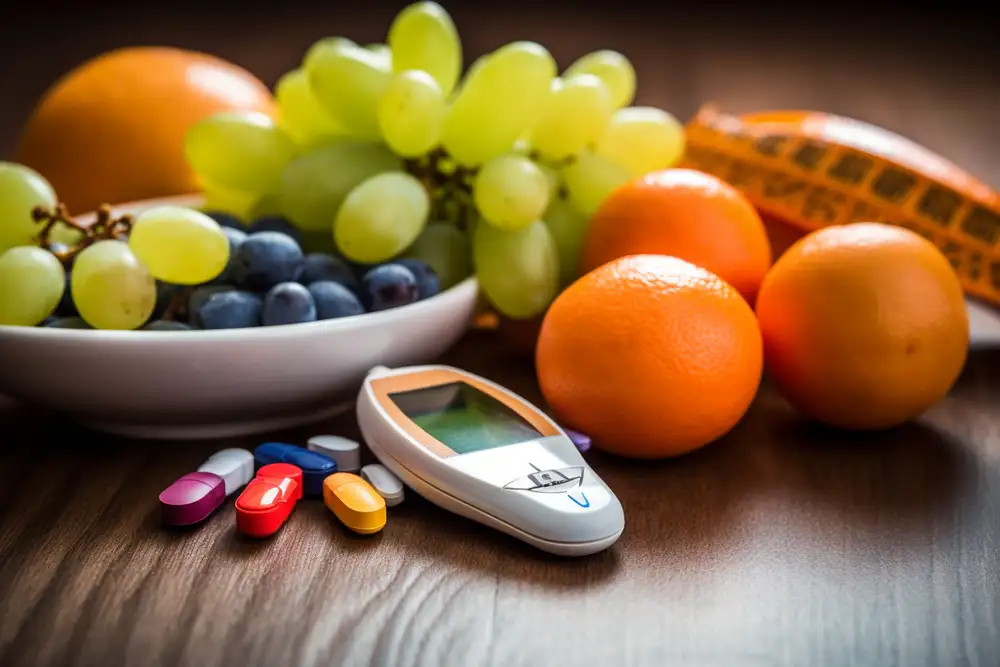Type 1 Diabetes (T1D) is a chronic autoimmune condition that affects millions of people worldwide. Unlike Type 2 Diabetes, which is often associated with lifestyle factors, T1D is primarily genetic and occurs when the immune system mistakenly attacks and destroys insulin-producing beta cells in the pancreas. The absence of insulin, a hormone crucial for regulating blood sugar, leads to a lifetime of insulin dependence for those with T1D. Over the years, medical researchers and scientists have been tirelessly working towards finding a cure for this challenging condition. Keep reading this blog for various T1D Cure methods.
Contents
Is It Easy To Cure T1D?

T1D is a complex autoimmune condition in which the immune system attacks and destroys the insulin-producing beta cells in the pancreas. Insulin is crucial for regulating blood sugar levels, and individuals with T1D must rely on insulin therapy for life.
Several challenges make finding a cure for T1D difficult:
- Autoimmune Nature: T1D is primarily an autoimmune disease, meaning the immune system mistakenly targets and destroys healthy cells (beta cells in the pancreas, in this case). Understanding and modulating the immune response without compromising the overall immune function is a significant challenge.
- Genetic Complexity: T1D has a genetic component, and multiple genetic factors may contribute to its development. Developing a cure involves addressing the underlying genetic predispositions, which adds complexity to the research.
- Individual Variability: Each person’s immune system and genetic makeup are unique, making it challenging to find a one-size-fits-all cure. Precision medicine, which tailors treatments to individual characteristics, is gaining importance in T1D research.
- Islet Cell Transplantation Challenges: While islet cell transplantation (replacing damaged beta cells with healthy ones) is a promising avenue, challenges include the scarcity of donor organs, the need for immunosuppressive drugs, and the risk of rejection.
- Ethical and Safety Concerns: New therapies, including gene editing technologies and stem cell therapies, raise ethical considerations. Ensuring the safety, effectiveness, and long-term impacts of these approaches is critical.
Different Methods To Cure T1D
There are several research avenues and experimental approaches that scientists and researchers are exploring in the quest for a cure. It’s important to note that while some of these methods show promise in preclinical or early clinical studies, they may still be in the experimental stages and not widely available or approved for general use. Here are some of the different methods being investigated for curing T1D:
Islet Cell Transplantation
Islet cell transplantation is an innovative method in the pursuit of a cure for Type 1 Diabetes (T1D). The approach involves transplanting insulin-producing islet cells into the pancreas to replace the damaged or destroyed beta cells. Beta cells are critical for insulin production, and their loss is a hallmark of T1D. Islet cell transplantation offers the potential to restore normal insulin function, thereby eliminating the need for external insulin administration.
The procedure typically involves isolating islet cells from the pancreas of a deceased donor. These isolated islets are then infused into the recipient’s liver, where they can begin producing insulin. While islet cell transplantation holds great promise, several challenges must be addressed for its widespread implementation.
One significant challenge is the scarcity of donor organs. The demand for islet cells far exceeds the available supply, leading to the exploration of alternative sources such as porcine islet cells and stem cell-derived islets. Additionally, the need for immunosuppressive drugs to prevent rejection poses another hurdle. Continuous advancements in immunosuppression protocols aim to balance the prevention of rejection with minimizing side effects and long-term complications.
Stem Cell Therapy

Stem cell therapy has emerged as a promising avenue in the quest to cure Type 1 Diabetes (T1D). The concept involves using the regenerative potential of stem cells to replace damaged or lost insulin-producing beta cells in the pancreas. Stem cells possess the unique ability to differentiate into various cell types, making them a potential source for generating functional beta cells.
Two main types of stem cells are being explored for T1D treatment: induced pluripotent stem cells (iPSCs) and embryonic stem cells. iPSCs are adult cells reprogrammed to have pluripotent characteristics, while embryonic stem cells are derived from early-stage embryos. Both types have shown the capacity to differentiate into insulin-producing cells in laboratory settings.
One of the primary challenges in stem cell therapy for T1D is ensuring the safety, functionality, and long-term viability of the generated beta cells. Researchers are actively working to refine differentiation protocols, optimize transplantation methods, and address potential risks such as tumorigenesis associated with stem cell therapies.
Immunotherapy
Immunotherapy represents a groundbreaking approach in the pursuit of a cure for Type 1 Diabetes (T1D). Unlike traditional treatments that focus on managing symptoms, immunotherapy aims to modulate the immune system to prevent it from attacking and destroying insulin-producing beta cells in the pancreas.
The immune system’s role in T1D involves a misguided attack on the body’s cells, specifically the beta cells responsible for insulin production. Immunotherapy seeks to restore immune tolerance, essentially re-educating the immune system to recognize beta cells as self and preventing further destruction.
Various strategies are being explored in immunotherapy for T1D, including the use of immune modulators, regulatory T cells, and antigen-specific therapies. Immune modulators aim to balance the immune response, while regulatory T cells play a crucial role in suppressing autoimmune reactions. Antigen-specific therapies target the specific antigens triggering the immune response, to induce immune tolerance.
One challenge in developing immunotherapies for T1D is achieving a delicate balance. While dampening the autoimmune response is essential, maintaining the overall function of the immune system to fight infections and other threats is equally crucial. Striking this balance requires a deep understanding of the immune system’s intricacies and careful design of therapeutic interventions.
Gene Editing Technologies
Gene editing technologies, notably CRISPR-Cas9, have emerged as powerful tools in the quest for a cure for Type 1 Diabetes (T1D). T1D has a genetic component, and specific genetic mutations contribute to the autoimmune destruction of insulin-producing beta cells in the pancreas. Gene editing aims to correct these genetic abnormalities, potentially preventing or halting the progression of T1D.
CRISPR-Cas9 allows scientists to precisely edit the DNA sequence at targeted locations. In the context of T1D, researchers are exploring ways to correct or modify the genetic factors associated with an increased risk of developing the condition. This could involve introducing beneficial genetic changes or disrupting the expression of genes linked to autoimmunity.
One of the challenges in gene editing for T1D is ensuring the accuracy and safety of the editing process. Off-target effects, unintended genetic changes, and ethical considerations are important factors that researchers must carefully address. Rigorous preclinical testing and adherence to ethical guidelines are crucial before advancing gene editing technologies to clinical applications.
Precision Medicine in T1D

Precision medicine is revolutionizing the field of healthcare, and its application in Type 1 Diabetes (T1D) holds the promise of personalized and targeted treatments. T1D is a complex condition with genetic and environmental factors contributing to its development. Precision medicine aims to tailor therapeutic interventions to the specific characteristics of each individual, optimizing treatment outcomes.
Understanding the genetic and molecular factors that contribute to T1D is a key aspect of precision medicine. By analyzing an individual’s genetic makeup, researchers can identify specific genetic variations associated with an increased risk of T1D. This information can inform personalized treatment plans that address the underlying genetic predispositions.
One approach in precision medicine involves identifying biomarkers that can predict disease progression and response to specific treatments. Biomarkers are measurable indicators, such as genetic markers or proteins, that provide insights into the individual’s T1D profile. Utilizing biomarkers allows for a more targeted and precise approach to treatment, reducing the trial-and-error aspect of finding the most effective interventions.
Artificial Pancreas Systems
While a definitive cure for Type 1 Diabetes (T1D) remains elusive, technological advancements have significantly improved the management of the condition. Artificial Pancreas Systems (APS), also known as closed-loop systems, represent a revolutionary approach to T1D care by combining insulin pumps and continuous glucose monitoring (CGM) systems.
The traditional management of T1D involves multiple daily insulin injections or pump infusions, along with frequent blood glucose monitoring. APS automates this process by continuously monitoring glucose levels and adjusting insulin delivery in real time. The closed-loop system aims to mimic the function of a healthy pancreas by providing precise insulin dosing based on the individual’s current glucose levels.
The components of an APS typically include a glucose sensor, an insulin pump, and a control algorithm. The glucose sensor measures blood sugar levels, and the algorithm processes this information to determine the appropriate insulin dose. The insulin pump then delivers the insulin subcutaneously.
The advantages of APS are numerous. By automating insulin delivery, APS can help maintain more stable blood glucose levels, reduce the risk of hypoglycemia (low blood sugar), and improve overall glycemic control. This technology has been particularly beneficial for individuals with T1D, providing them with a tool to manage their condition more effectively.
Which T1D Cure Method To Choose?

Choosing a potential cure method for Type 1 Diabetes (T1D) involves careful consideration of various factors. As of my last knowledge update in January 2022, it’s important to note that there is no widely accepted cure for T1D, but several promising avenues are under research. Factors affecting the selection of a potential T1D cure method include:
- Stage of Development: Consider the current stage of development for each potential cure method. Some approaches may be in the experimental or early clinical stages, while others might be further along in the research pipeline.
- Safety Profile: Assess the safety profile of each potential cure method. Understand the potential risks, side effects, and long-term safety implications associated with the treatment.
- Efficacy and Success Rates: Examine the efficacy and success rates of each method based on available research and clinical trials. Consider how well the treatment addresses the underlying causes of T1D and its potential to restore normal insulin function.
- Individual Health Profile: Individual factors such as overall health, medical history, and the presence of other health conditions can influence the suitability of a cure method. Some treatments may be better suited to certain health profiles than others.
- Genetic and Immunological Factors: Understand the genetic and immunological factors contributing to T1D. Certain cure methods, such as gene editing or immunotherapy, may be tailored to address specific genetic or immunological aspects of the condition.
- Lifestyle Considerations: Consider how each potential cure method aligns with the individual’s lifestyle. Some treatments may require ongoing maintenance, follow-up appointments, or lifestyle adjustments, and it’s important to evaluate their feasibility in daily life.
- Accessibility and Availability: Evaluate the accessibility and availability of each cure method. Consider factors such as the availability of specialized healthcare facilities, the cost of treatment, and the potential for widespread adoption.
- Treatment Personalization: Consider the level of personalization offered by each cure method. Precision medicine approaches, for example, aim to tailor treatments based on an individual’s genetic and molecular characteristics.
- Ethical Considerations: Evaluate the ethical implications of each curing method, especially when considering approaches involving gene editing or stem cell therapy. Ethical considerations may include concerns about safety, consent, and the long-term consequences of the treatment.
Sources To Get Help
If you are seeking help, information, or support related to Type 1 Diabetes (T1D), several reputable online websites and resources provide valuable information, guidance, and community support. Here are some notable sources:
- Diabetes Mantra: Diabetes Mantra is a leading organization dedicated to funding T1D research. Their website offers comprehensive information on T1D, research updates, and resources for individuals living with diabetes.
- American Diabetes Association (ADA): ADA is a well-established organization providing information, advocacy, and support for individuals with diabetes. Their website includes educational resources, lifestyle tips, and community forums.
- Beyond Type 1: Beyond Type 1 is a nonprofit organization that aims to improve the lives of those living with T1D. The website features articles, personal stories, and resources for both individuals with T1D and their caregivers.
- Diabetes Forecast: Diabetes Forecast is the consumer magazine of the American Diabetes Association. It provides practical advice, tips, and articles on living with diabetes, including T1D.
Conclusion
The pursuit of a cure for Type 1 Diabetes is a multifaceted journey that involves a combination of scientific innovation, technological advancements, and a deep understanding of the underlying biology of the condition. While a definitive cure is yet to be realized, the ongoing research and progress in various avenues offer hope for a future where individuals with T1D can lead lives free from the constraints of insulin dependence. As the scientific community continues to unravel the mysteries of T1D, the prospect of a cure becomes increasingly promising, bringing renewed optimism to those affected by this challenging condition.
Do you want to get rid of diabetes? Join our online diabetes treatment program and reverse Diabetes naturally through lifestyle changes such as a Personalized Diet plan, Exercise, Yoga, dieticians, and health coaches.

